NYT: Rahami’s father explicitly warned the FBI. Probe of accused NY/NJ bomber was the third time since 2010 when The Bureau ignored intel on jihadis bent on terror in the U.S.
By Peter Lance Sept. 22nd, 2016. UPDATE: when I published this piece Monday on the many failures of the FBI to stop acts of jihadi terror in the U.S. I wrote that “It’s too early to know if the Afghan bomber from Jersey had accomplices or if the FBI had him on any kind of suspect list prior to the execution of his plan.”
Now The NYT reports and The Guardian confirms that Ahmad Khan Rahami’s father outed him to the Bureau in 2014 after he stabbed his brother, but then, following a two month “check,” Mohammad Rahami was reportedly told by FBI agents that his son Ahmad was was “not a terrorist.”
According to The A.P. a “law enforcement official” confirmed that the Bureau looked into the matter, but that Mohammad Rahami later retracted his comment and said he meant that Ahmad, was “hanging out with the wrong crowd, including gang members and acting like a thug.” The FBI reviewed its databases and found no credible connection to terrorism or threat to the US from the son, the official said.
But CNN reports that after becoming a naturalized citizen in 2011 the accused NY and New Jersey bomber made separate trips to Afghanistan and Quetta, Pakistan a hotbed of jihadi activity. He then made additional trips to both countries in 2013, staying until 2014. At that point CNN says he was “taken in for secondary questioning” and “satisfied whatever concerns immigration officials had.”
Today following a detailed interview with Mohammad Rahami, The NYT reports, that he “explicitly warned federal agent’s about his son’s interest in terrorist organizations like Al Qaeda and his fascination with jihadist music, poetry and videos.”
“I told the FBI to keep an eye on him, he said. “They said, ‘Is he a terrorist?’ I said: ‘I don’t know. I can’t guarantee you 100 per cent if he is a terrorist. I don’t know which groups he is in. I can’t tell you.'”
As today’s piece by reporters Marc Santora, Pir Zubair Shah and Joseph Goldstein continues: “The agency, in a statement earlier in the week, said it had conducted an assessment of Ahmad Rahami that included multiple interviews with the father, a review of F.B.I. databases and public records and checks with other agencies. But the review did not turn up anything that warranted further inquiry, and the matter was closed.”
But the Bureau’s awareness that Rahami was a potential terrorist marks the third time since since 2010 that the principal agency charged with protecting the U.S. homeland from terrorism was warned about or investigated Islamic radicals, only to give them a pass before they implemented plots to wreak havoc for the jihad.
CONSIDER THE LIST:
2010: Faisal Shahzad (37) a Pakistani-American citizen was on the radar of the Joint Terrorism Task Force in 2004, but he later traveled to Waziristan and returned to build a truck bomb that he drove into the Times Square theater district on a Saturday night. A nearby onlooker contacted the authorities and the device was defused. Shazhad was appended in 53 hours due to brilliant local police work.
2013: Tamerlan Tsarnaev and his younger brother Dzhokhar both Kyrgyzstani-American naturalized citizens succeeded in planting two pressure-cooker bombs near the finish line of the Boston Marathon killing three and injuring 264 others. Tamerlan was later killed by police and his brother arrested, then confessed that they also intended to bring off a major attack in Times Square. We later learned that two years before the blast Tamerlan had been red flagged to the FBI by Russia’s Federal Security Service (FSB).
2016: Omar Mateen (29) who murdered 49 people in an Orlando nightclub before he was killed in a police shootout had been investigated not once, but twice by the Bureau in 2013 and 2014.
WARNINGS IGNORED
Each time we experience another attack like Saturday’s bombings in New York and New Jersey or the bloody rampage-stabbing in Minnesota by Dahir A. Adan, a 22-year-old Somali emigré, the authorities remind us that targeting these “lone wolves” before they succeed is like “trying to find a needle in a stack of needles?”
But anyone who screened CitizenFour, Laura Poitras’ Oscar winning documentary or Oliver Stone’s Snowden will be reminded of the massive capabilities of our NSA to mine billions of fragments of meta data with real time social connections worldwide that allow for instant “dot connections.” Whether the process is done legally pursuant to FISA Court warrants, or as Snowden, the CIA/NSA whistleblower proved, illegally the question is: why can’t our government identify more of these radicals before they strike?
With America’s $80 billion-a-year intelligence gathering apparatus, an FBI budget request of $8.48 billion for 2016 and the massive interdiction of civil liberties exposed by Snowden permitting the NSA to penetrate our most intimate relationships, how did they miss two of the most notorious homegrown terror threats since 9/11: Shazhad and the Tsarnaev brothers or even worse, Omar Mateen, the Orlando massacre shooter, twice investigated by the Bureau in 2013 and 2014?
You might find some of the answers in The Afterword of my latest HarperCollins book, “Deal With The Devil.”
MISSING THE REAL THREATS
Right after Shazhad’s device failed to detonate, the NYPD did a remarkable job of arresting him within 53 hours. But there was a shocking revelation in a New York Times story on Shazhad that was overlooked by the rest of the mainstream media.
George LaMonica, a 35-year-old computer consultant who purchased his condo in Norwalk Connecticut from Shazhad in 2004 told Times reporters that ‘A few weeks after he moved in investigators from the Joint Terrorism Task Force interviewed him, asking for details of the transaction and for information about Mr. Shahzad.’
It turned out that Shazhad had received five months of training at a terrorist camp in Waziristan, Pakistan and he’d returned just three months before parking his Nissan Pathfinder full of explosives adjacent to the Marriott Hotel in Times Square. 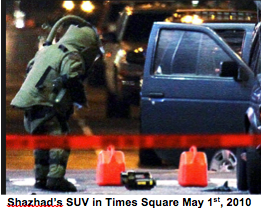
The fact that he was able to build such a weapon of mass destruction on his own and that he moved it into a location where an explosion would have produced mass casualties, gives one pause, particularly when we now know that six years earlier, agents from the JTTF had Shazhad on its radar and inexplicably no one within the Bureau connected the dots on the threat.
And while local police in Boston interdicted the Tsarnaev brothers within four days of the deadly Boston Marathon bombings in 2013, it soon became known that 26-year-old Tamerlan Tsarnaev had been vetted and cleared by the FBI in 2011 after the Russian government had asked the Bureau to investigate his links to terrorism.
That prompted calls by the Chairman of the House Homeland Security Committee Rep. Peter King to ask, ‘Did They move too quickly by letting this guy off the hook? The answer of course, is that they did. But the Bureau escaped any serious scrutiny for that colossal act of negligence which led to the blowback in Boston.
THE FAILURE OF GOVERNMENT OVERSIGHT
All of that prompts us to raise the same question posed by the poet Juvenal who wrote in the first century AD: “Quis custodiet ipsos custodies?” Who is guarding the guardians themselves?
As documented in the 2nd book in my 9/11 trilogy “Cover Up,” half the staff of the 9/11 Commission was comprised of veterans of the very failed agencies they were “investigating.” As a result, their conclusion that the Sept. 11th attack was the result of a “failure of imagination,” meant that not a single U.S. intelligence official was held accountable for the greatest intel failure since Pearl Harbor which killed 2,996 people.
Instead, The Commission proposed a series of measures that, if implemented, would help agencies like the Bureau connect the dots. That was The Commission staff’s promise to America and compliance with that promise was to be measured over the years by a series of reports from the ongoing 9/11 Review Commission.
They issued their Final Report on March 25th, 2015.
But as I pointed out on this site back then, The Review Commission, another “fox guarding the chicken coop” entity dominated by the Bureau itself, was relatively silent on the FBI’s two biggest counter-terrorism failures since 9/11:
First, the development of a Virtual Case File (VCF) system so that Special Agents and analysts, bogged down in a “paper-driven culture,” could instantly access threat-related data. And second, the ongoing chronic inability of Bureau officials to recruit translators fluent in languages consistent with the emerging jihadi threat.
At that time, 18 months ago, I cited the seminal reporting of Eric Lichtblau in The L.A. Times and the NYT and Dan Eggen of The Washington Post, who had documented, over the years, multiple acts of FBI negligence missing from the 2015 Report.
TRILOGY AND SENTINEL
As far back as 2002, Lichtblau and Charles Piller reported in The LAT that the FBI’s information systems were so antiquated that right after 9/11 frustrated agents in Tampa were unable to email photos of the 19 hijackers to the Bureau’s 56 Regional Offices. They had to resort to overnight mail.
The remedy to bring the Bureau’s IT infrastructure into the 21st century was supposed to be a new multi-million dollar Virtual Case File system called Trilogy, first announced prior to the attacks in 2000.
But by 2006 Eggen and Griff Witte reported on Trilogy’s failure in a Wash Post piece headlined, “The FBI’s Upgrade That Wasn’t. $170 Million Bought an Unusable Computer System.”
Four years later in 2010, now on the staff of the NYT, Lichtblau detailed the cost overruns and deployment problems with the Bureau’s new VCF boondoggle, the $305 million dollar Sentinel system. That latest setback had everything to do with one of the nation’s aerospace giants, because after Trilogy’s abandonment, the development of Sentinel was farmed out to Lockheed Martin in 2006.
But after $30 million in cost overruns, when the Bureau suspended the overhaul of Sentinel in 2010, what was largely ignored in the media (and missing from the 9/11 Review Commission’s report) was the fact that starting in 2005 after he’d left the DOJ as Deputy Attorney General, Lockheed Martin’s General Counsel and Senior V.P. was none other than James Comey who is now the FBI director. 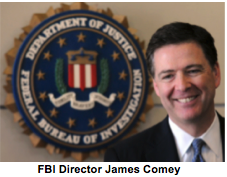
Other than a single footnote, the only reference to “Virtual Case File” in the 9/11 Review Commission’s report comes on page 127 noting that the acronym for Virtual Case File is VCF.
Comey’s revolving-door Justice-to-Lockheed-to-FBI trajectory isn’t mentioned, even though the ex-Deputy A.G. was sworn in to succeed Robert Mueller as the 7th FBI Director on September 4th 2013.
But just over a year into Comey’s tenure, the DOJ Inspector General issued another another dire report on Sentinel. The findings were covered by Jeff Stein in Newsweek
“Sentinel… was supposed to be finished by the end of 2009 at a cost of $425 million. Plagued by mismanagement, cost overruns and technical glitches detailed in a series of reviews through the years, its budget has ballooned another $100 million, the new report says. Years after it was launched, FBI special agents and intelligence analysts sometimes still have to visit another field office to obtain a particularly big or sensitive file, sources say.”
That revelation echoed the identical “paper-driven” limitations first reported by Lichtblau and Piller in 2002. But in today’s digital, social media-driven world of intelligence gathering, if the Bureau’s basic IT system for communicating data still isn’t fully operational, how can we expect Special Agents, Analysts and translators to connect the dots on the next terror threat?
THE URGENT NEED FOR TRANSLATORS
The 9/11 Review Commission also cited the need to hire more linguists fluent in the language of the emerging jihadi enemy. But the report only hints at the other stunning Bureau lapse first reported by Dan Eggen in The Post back in 2006.
“Five years after Arab terrorists attacked the United States, only 33 FBI agents have even a limited proficiency in Arabic, and none of them work in the sections of the bureau that coordinate investigations of international terrorism, according to new FBI statistics.”
In the 2009 edition of “Triple Cross,” I underscored the dangers in the Bureau’s failure to recruit Middle Eastern linguists by examining the fate of Bassem Youssef, once the Bureau’s highest-ranking Arabic-American special agents.
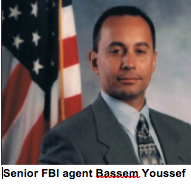 A decorated counterterrorism SA who descends from Christian Egyptians, Youssef filed a lawsuit in 2003 claiming that he was discriminated against when he was pulled from the field and given a desk job.
A decorated counterterrorism SA who descends from Christian Egyptians, Youssef filed a lawsuit in 2003 claiming that he was discriminated against when he was pulled from the field and given a desk job.
In a sworn deposition submitted during Youseff’s suit in 2005, then FBI Director Mueller admitted that he was unsure of the relationship between Osama bin Laden and Sheikh Omar Abdel Rahman, the spiritual leader of al Qaeda who was convicted of seditious conspiracy in 1995 in the “Day of Terror” trial which focused on a plot by the same al Qaeda cell responsible for the 1993 WTC bombing, to blow up the bridges and tunnels into Manhattan, the U.N. and the FBI’s New York Office at 26 Federal Plaza.
Similarly, Dale Watson, the FBI’s counterterrorism chief for two years post 9/11, was unable to differentiate between Shiites and Sunnis, the two principal sects of Islam. Testifying before a House Judiciary subcommittee in 2008 Youseff declared, “The FBI Counter Terrorism Division is ill-equipped to handle the terrorist threat we are facing.”
In April, 2009 I interviewed Youseff’s lawyer Stephen M. Kohn and asked him whether, at that point, the Bureau’s Arabic language capabilities had significantly improved since 2006 and he insisted that they had not.
The continuing issue of fluency in middle eastern languages was of such concern on Capitol Hill that on May 21, 2012, Senator Daniel Akaka, (D-HI) then chairman of the Homeland Security Subcommittee on Oversight of Government Management held his seventh hearing on what he termed “a national security crisis;” namely the lack of foreign language skills, particularly at the FBI and CIA.
The Bureau was represented at the hearing by Tracey A. North, Deputy Assistant Director of the Directorate of Intelligence. In her statement she never addressed the key question of how many special agents were fluent in Arabic and other middle eastern tongues. Instead she listed percentages: “The FBI has increased its overall number of linguists by 85 per cent, with the number… in high priority languages such as Arabic increasing by 261 per cent, Urdu… by 733 per cent, and Farsi… by 142 per cent.”
Because of the vagueness of her statement I contacted the FBI in early November, 2012 and asked this specific question: “How many Special Agents, SSA’s, ASAC’s ADICS or other members of senior management are fluent in: Arabic, Urdu and Farsi?”
On November 13th, 2012 I got this reply from Betsy R. Glick in the FBI’s Public Affairs Office: “The most specific information I have been advised can be released is this: the FBI has over 100 Special Agents who speak Arabic, Farsi, and/or Urdu. The FBI also has over 340 full and part time linguists who speak, or provide services, in Arabic, Farsi, and/or Urdu.”
That number of “over 100 special agents” fluent in Arabic, Farsi and Urdu more than eleven years after the 9/11 attacks takes on a chilling starkness when you consider that by 2009 there were roughly 5,000 special agents working counterterrorism. The fact that barely two percent of them were fluent in the language of jihadists is some measure of FBI’s counterterrorism performance.



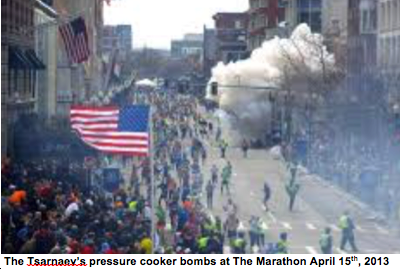
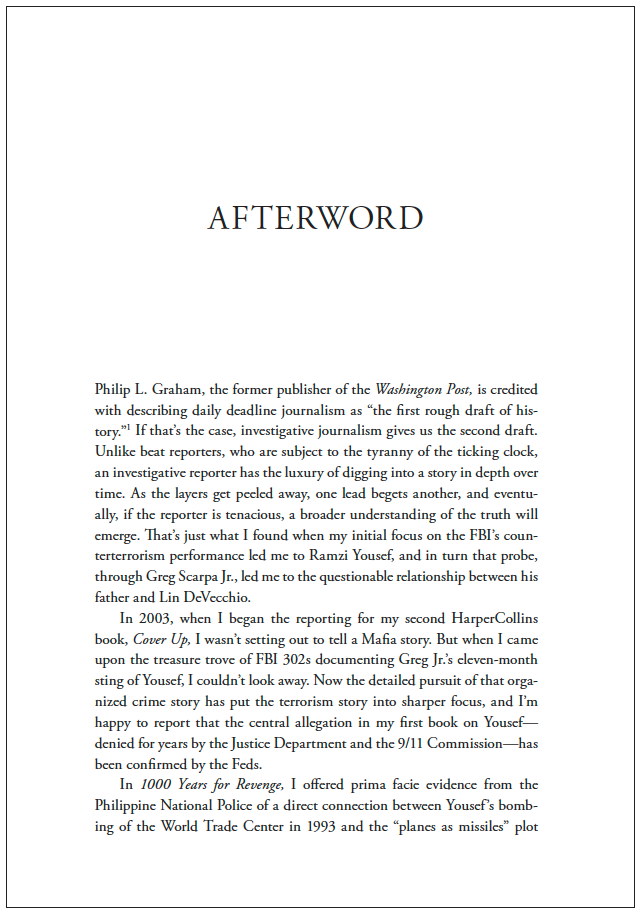
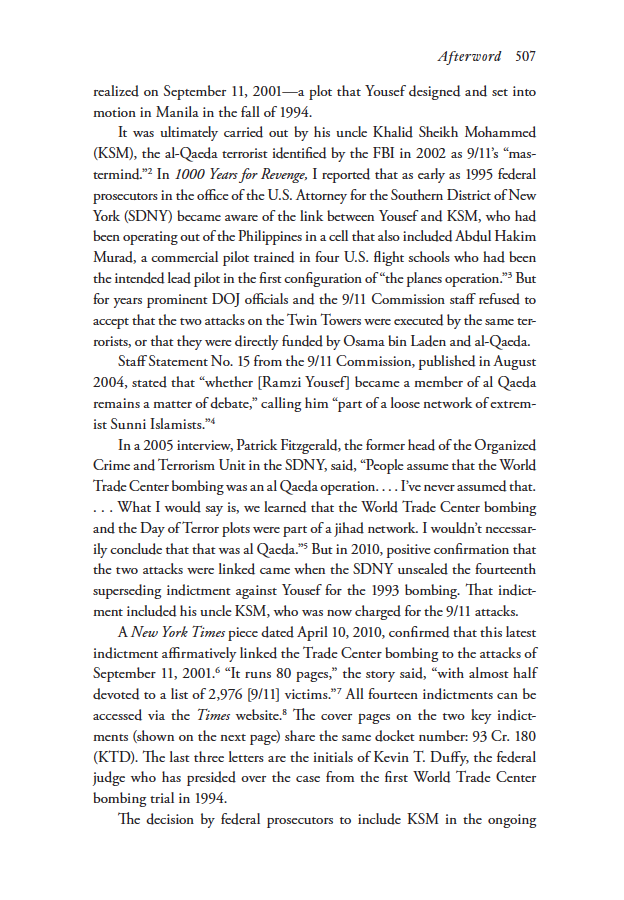
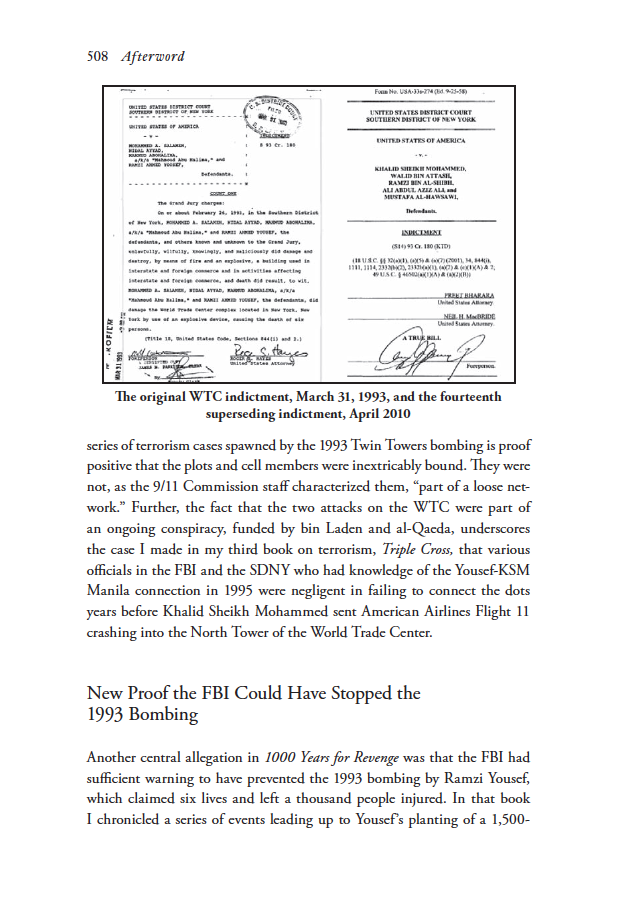
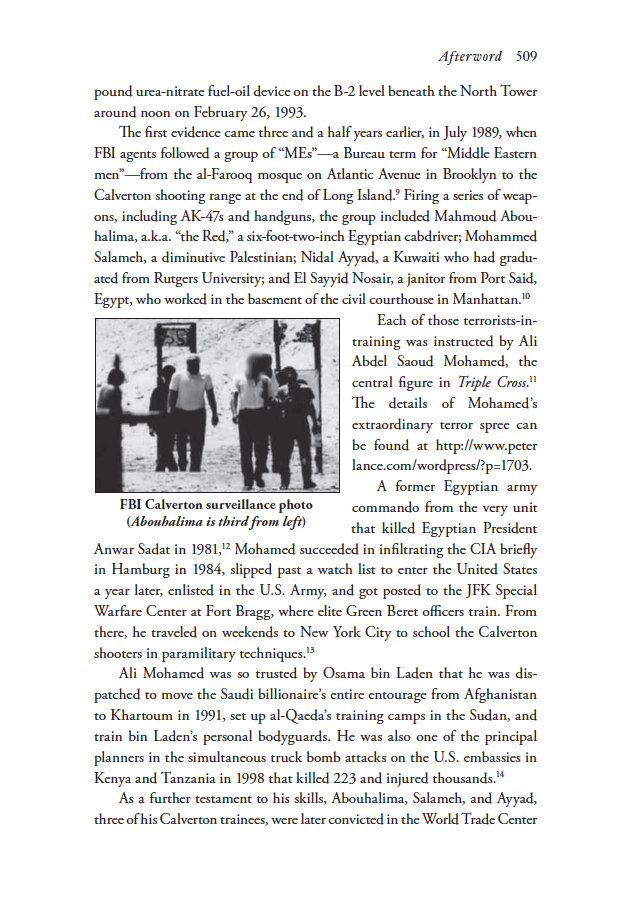
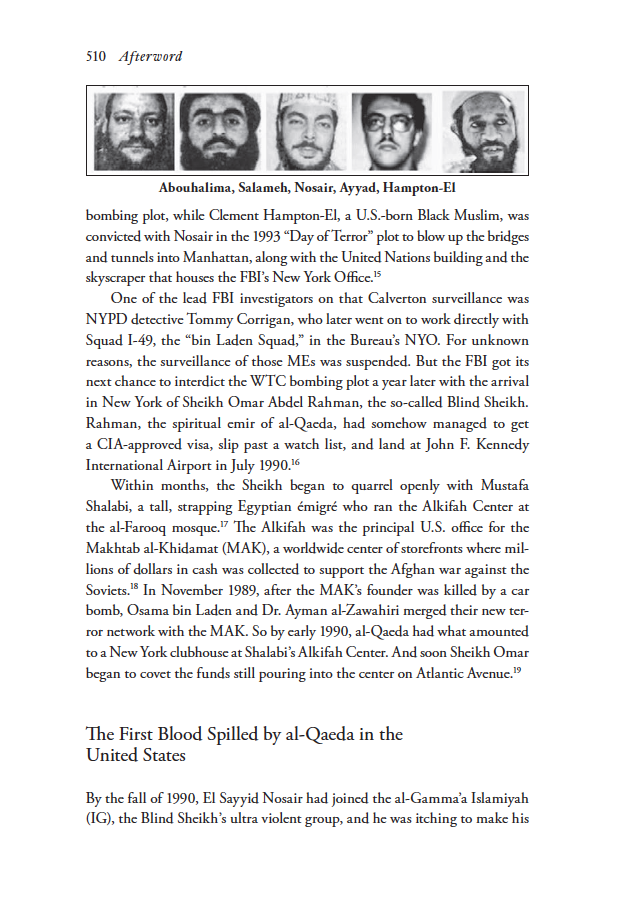

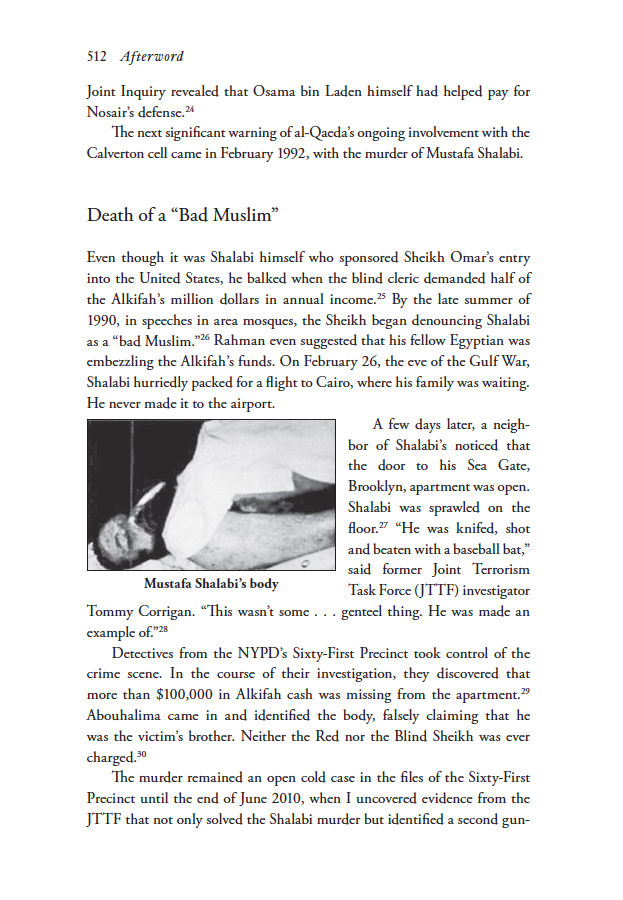


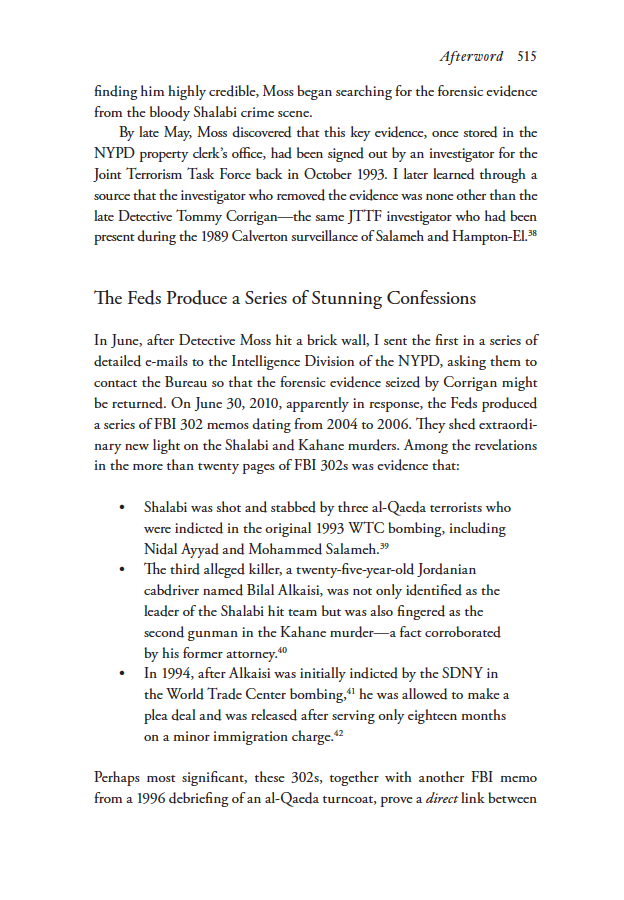
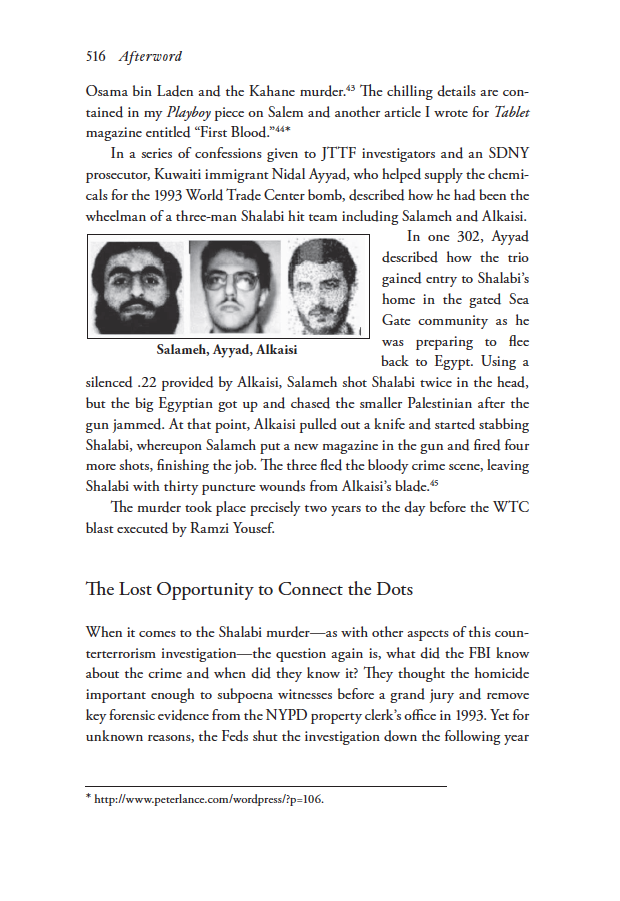
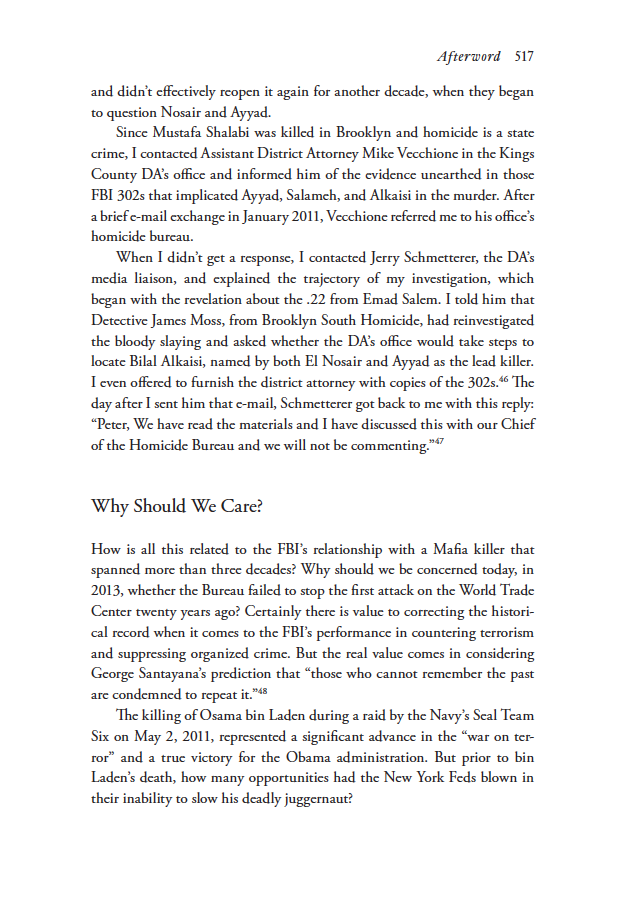
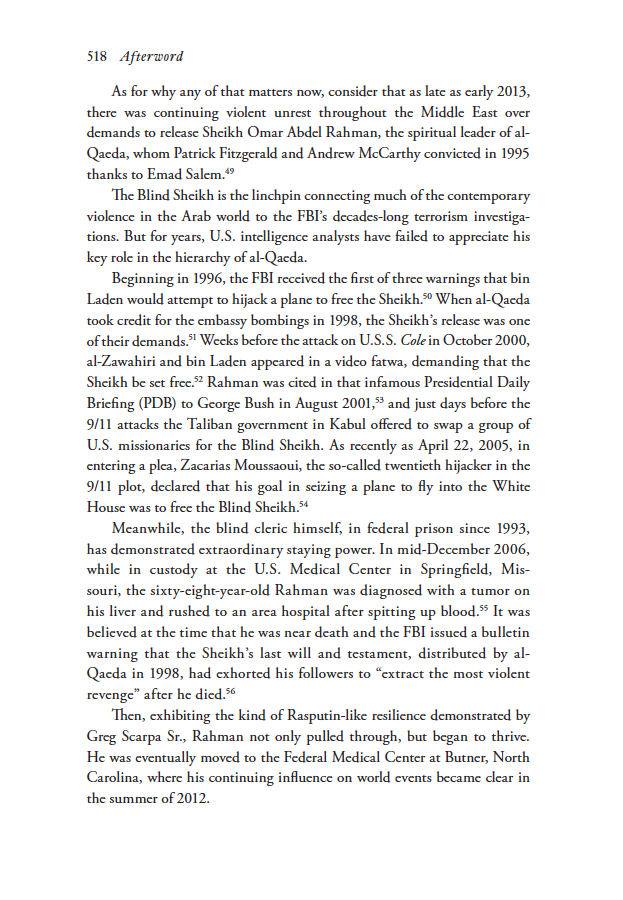

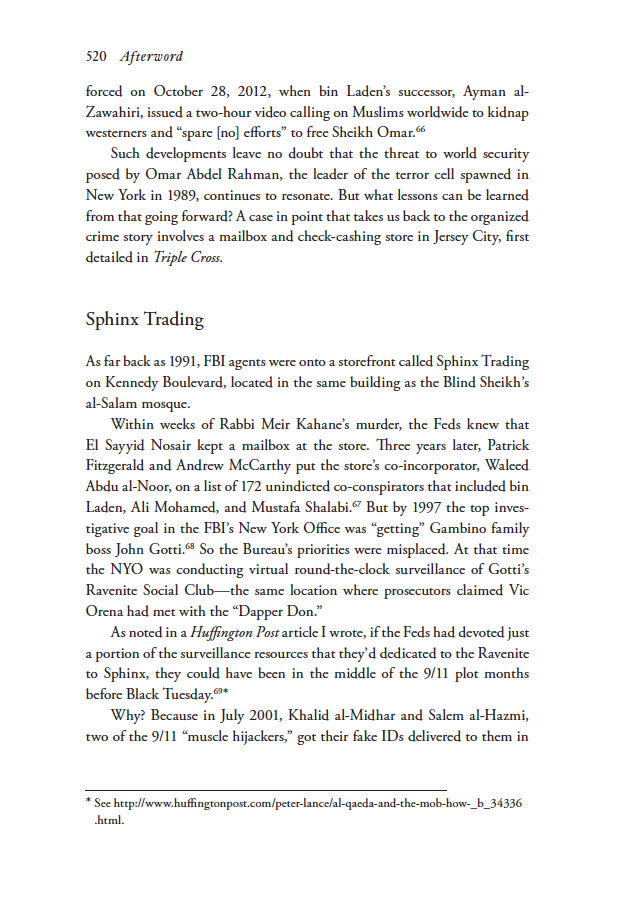
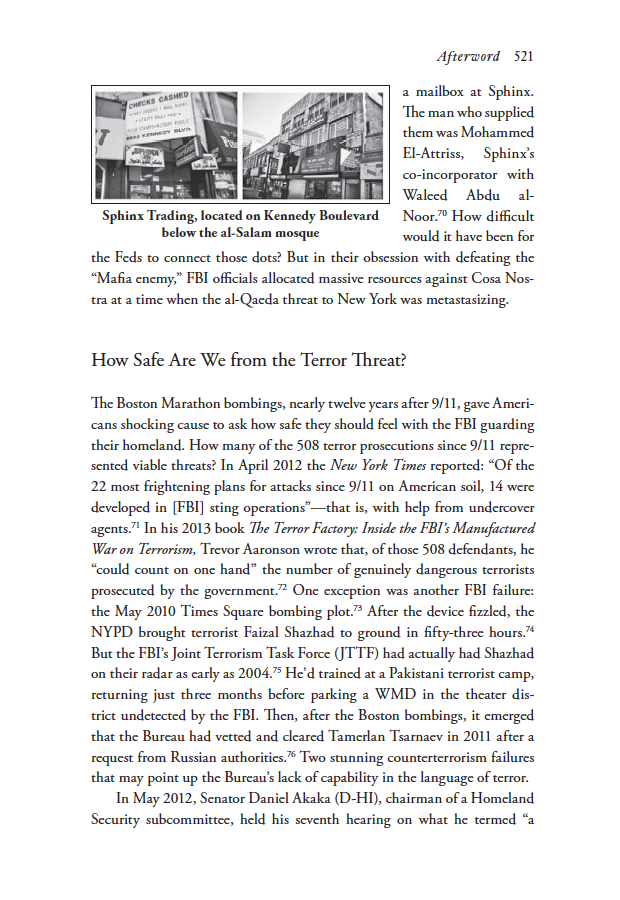

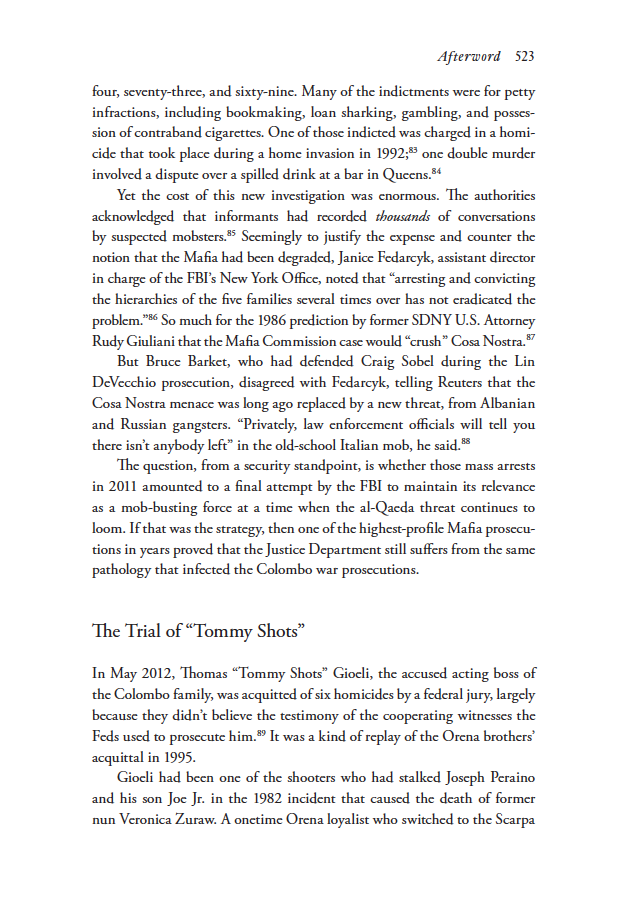
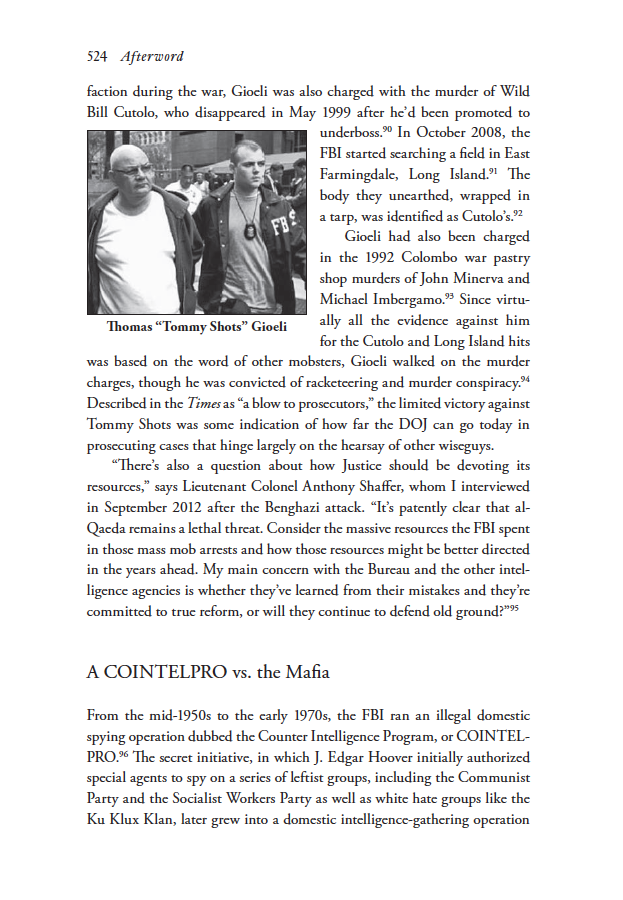
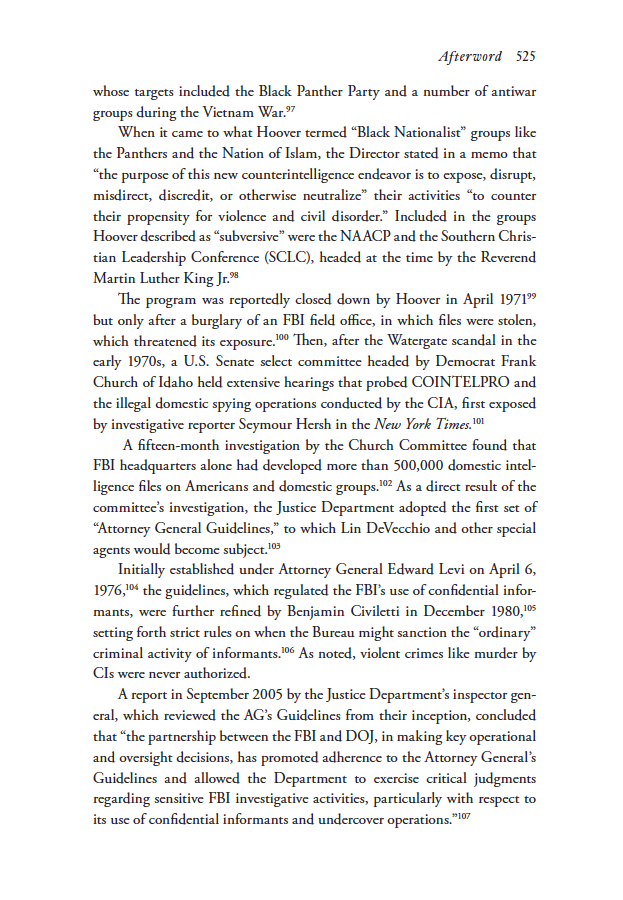
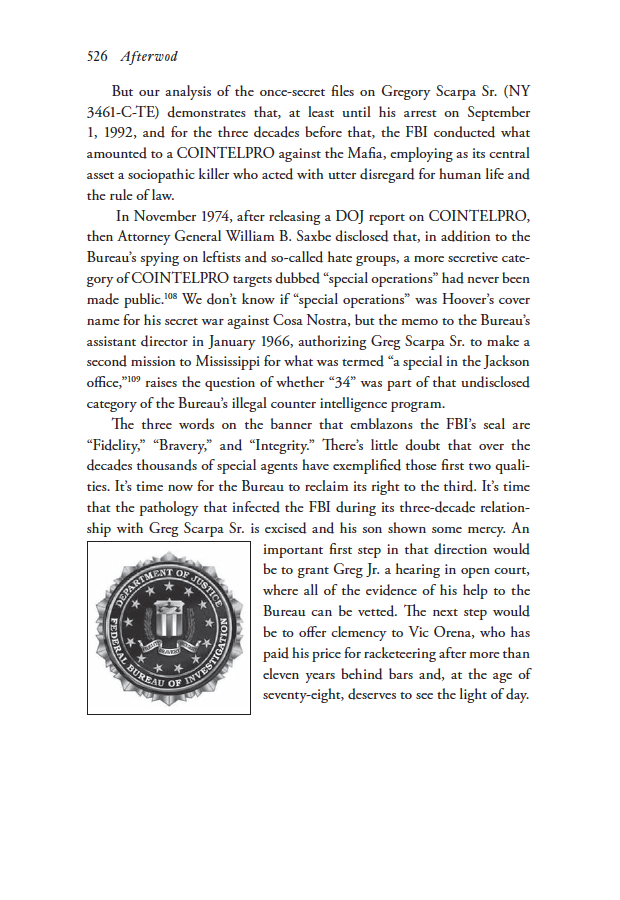
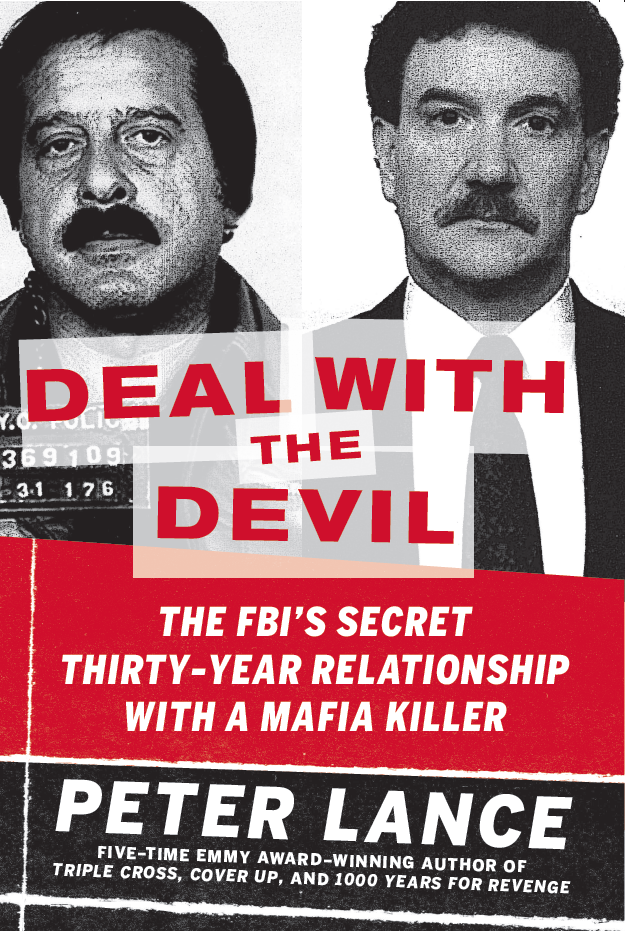

Recent Comments